
Omdurmán is a major city in Sudan. It is the second most populous city in the country, and thus also in the State of Khartoum. Omdurman lies on the west bank of the River Nile, opposite and northwest of the capital city of Khartoum. It is on the Nile river and acts as an important road hub, with the Nile boosting transportation even further.
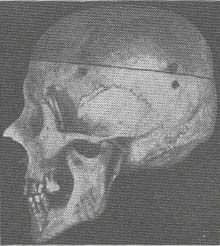
The Dinaric race, also known as the Adriatic race, were terms used by certain physical anthropologists in the early to mid-20th century to describe the perceived predominant phenotype of the contemporary ethnic groups of southeast Europe.
Australo-Melanesians is an outdated historical grouping of various people indigenous to Melanesia and Australia. Controversially, some groups found in parts of Southeast Asia and South Asia were also sometimes included.

The Alpine race is a historical race concept defined by some late 19th-century and early 20th-century anthropologists as one of the sub-races of the Caucasian race. The origin of the Alpine race was variously identified. Ripley argued that it migrated from Central Asia during the Neolithic revolution, splitting the Nordic and Mediterranean populations. It was also identified as descending from the Celts residing in Central Europe in Neolithic times. The Alpine race is supposedly distinguished by its moderate stature, neotenous features, and cranial measurements, such as high cephalic index.
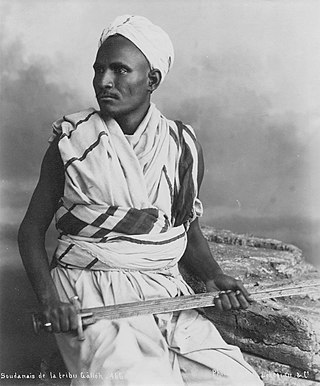
The Ja'alin, Ja'aliya, Ja'aliyin or Ja'al are a tribal confederation and an Arab or Arabised Nubian tribe in Sudan. The Ja'alin constitute a large portion of the Sudanese Arabs and are one of the three prominent Sudanese Arab tribes in northern Sudan - the others being the Shaigiya and Danagla. They trace their origin to Ibrahim Ja'al, an Abbasid noble, whose clan originally hailed from the Hejaz in the Arabian Peninsula and married into the local Nubian population. Ja'al was a descendant of al-Abbas, an uncle of Muhammad. The Ja'alin formerly occupied the country on both banks of the Nile from Khartoum to Abu Hamad. According to a source, the tribe allegedly once spoke a now extinct dialect of Nubian as late as the nineteenth century. Many Sudanese politicians have come from the Ja'alin tribal coalition.
Kawahla are an Arab tribe inhabiting Eastern Sudan. They speak Sudanese Arabic and members of this ethnicity are Sunni Muslim. There are over 40 million members worldwide, with over 2 million in Southern Egypt (Al-Ababda) and 15 million in Morocco and Mauritania 15 million in KSA and 15 million in Iraq and Kuwait and about 15 million in Sudan.

Joseph Auguste Anténor Firmin, better known as Anténor Firmin, was a Haitian barrister and philosopher, pioneering anthropologist, journalist, and politician. Firmin is best known for his book De l'égalité des races humaines, which was published in 1885 as a rebuttal to French writer Count Arthur de Gobineau's work Essai sur l'inégalité des races humaines. Gobineau's book asserted the superiority of the Aryan race and the inferiority of Blacks and other people of color. Firmin's book argued the opposite, that "all men are endowed with the same qualities and the same faults, without distinction of color or anatomical form. The races are equal". He was marginalized at the time for his beliefs that all human races were equal.
Republican Brotherhood was a small, but influential political party in Sudan. The party was founded in the 1945, by Mahmoud Mohamed Taha. The party came into the limelight in 1983, as Taha opposed the implementations of sharia laws by Jaafar Nimeiry. Taha was arrested and executed in 1985. The party continued to exist for a few years, being disbanded sometime after 1989.
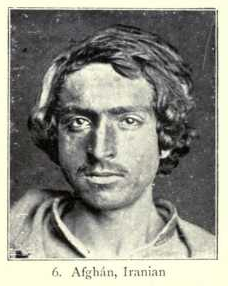
The Irano-Afghan race or Iranid race is an obsolete racial classification of human beings based on a now-disproven theory of biological race. Some anthopologists of the 20th century classified the populations native to the Iranian plateau as belonging to this race, which was usually seen as a subrace of the Caucasian race or the Mediterranean racial subtype of that race, depending on the authority consulted.
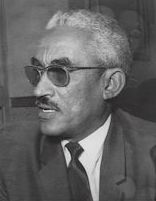
Babiker Awadalla was a Sudanese Arab nationalist politician who was Prime Minister of Sudan from 25 May 1969 to 27 October 1969.

Paul Topinard was a French physician and anthropologist who was a student of Paul Broca and whose views influenced the methodology adopted by Herbert Hope Risley in his ethnographic surveys of the people of India. He became director of the École d'Anthropologie and secretary-general of the Société d'Anthropologie de Paris, both in succession to Broca. He was elected as a member to the American Philosophical Society in 1886.
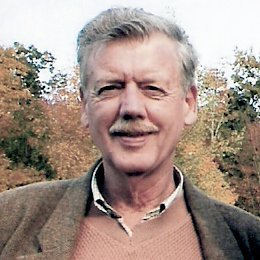
Richard A. Lobban, Jr., husband of Dr. Carolyn Fluehr-Lobban, is an anthropologist and early pioneer in social network modeling, archaeologist, Egyptologist, Sudanist, foreign policy expert, human rights activist, mentor, father, and beekeeper. He is Professor Emeritus of Anthropology and African Studies at Rhode Island College, Providence, Rhode Island since 1972; also a lecturer at the Archaeological Institute of America and the Naval War College. He is an expert in Ancient Sudan and Ancient Egypt, with a particular focus on Nubia. He is a co-founder of the Sudan Studies Association.
Alcohol in Sudan has been broadly illegal since 1983, when the single-party Sudan Socialist Union passed the Liquor Prohibition Bill, making illegal the manufacture, sale, and consumption of any form of alcohol for the Muslim citizens of the country. Alcoholic drinks have been banned since former President Jaafar Nimeiri introduced Islamic law, throwing bottles of whisky into the Nile in the capital Khartoum. On 12 July 2020, Sudan decided to allow non-Muslims to drink alcohol.
Su'ad al-Fatih Mohammed al-Badawi was a Sudanese academic, politician, and journalist. She was known both for her advocacy of women's rights and for her support of Islamism.

The Sudan Studies Association (SSA) is the US-based professional association for scholars of Sudan and South Sudan, with members from the United States, Canada, Sudan, South Sudan, and elsewhere. The SSA was founded in 1981 to pursue knowledge about all aspects of life in Sudan and to "foster closer ties among scholars in the Sudan, North America, Europe, the Middle East, and elsewhere." The association seeks to promote research about the dynamics that shape Sudan and South Sudan and their relationships with neighboring countries. Conferences are held annually in North America. In addition, international conferences have in recent years been convened in collaboration with the Society for the Study of the Sudans UK (SSSUK) in Durham, England (2000), Washington DC (2003), Bergen, Norway (2006), Pretoria (2009) and Bonn (2012).

Grass Curtain was a quarterly journal of Southern Sudanese politics and current events published by the Southern Sudan Association in London between 1970 and 1972. Enoch Mading de Garang was the journal's co-founder and editor-in-chief. The Grass Curtain was closely linked to the Southern Sudan Liberation Movement (SSLM), the political arm of Anya-Nya, a collection of Southern Sudanese separatist movements formed during the First Sudanese Civil War. The journal was published in large part to generate wider support for the South Sudanese cause.
Rev. Philip Abbas Ghaboush was a Nuba Sudanese reverend and politician. He was born in Omdurman, Sudan in 1922 and died in London in 2008 at the age of 86. He descended from the Ama people of Nuba Mountain of Southern Kordufan. He studied religion at Bishop Gwynne College of Theology and Trinity College. He ran as a candidate for the General Union of Nubas party in 1965 and was exiled from Sudan in 1969 after the military coup in which Jaafar Nimeiry seized power and stayed in exile until 1978. In the 1986 elections for the National Assembly of Sudan, his Sudan National Party won 10 seats.
Akhbar al-Youm is a newspaper in Sudan. It is the largest Arabic-language daily in the country. It had strong links to the government and distributed 30,000 to 35,000 copies per day as of 2011.
Mihera Bint Abboud was a 19th-century Sudanese female poet and warrior, celebrated as a heroine for her attitude of resistance to the Turco-Egyptian invasion of Sudan.

Sudanese nationality law is regulated by the Constitution of Sudan, as amended; the Sudanese Nationality Law, and its revisions; and various international agreements to which the country is a signatory. These laws determine who is, or is eligible to be, a national of Sudan. The legal means to acquire nationality, formal legal membership in a nation, differ from the domestic relationship of rights and obligations between a national and the nation, known as citizenship. Nationality describes the relationship of an individual to the state under international law, whereas citizenship is the domestic relationship of an individual within the nation. In Sudan, nationality is often equated with ethnicity, despite recognition of the legal definitions. Sudanese nationality is typically obtained under the principle of jus soli, i.e. by birth in Sudan, or jus sanguinis, born to parents with Sudanese nationality. It can be granted to persons with an affiliation to the country, or to a permanent resident who has lived in the country for a given period of time through naturalization.










